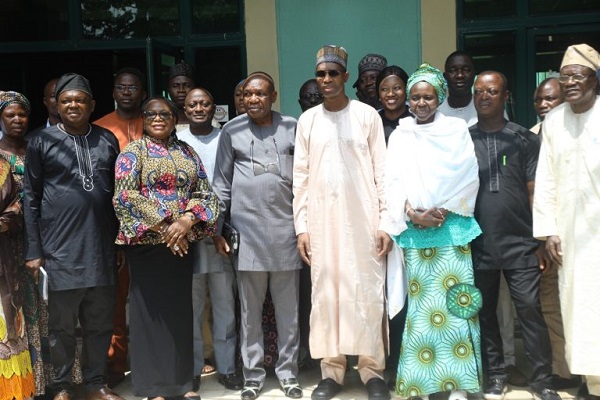
The permanent secretary of the Federal Ministry of Environment, Alhaji Yusuf Idris has called for collaborative efforts from charcoal/wood traders and exporters to ensure the continued provision of sustainable forest management in Nigeria.
Idris expressed concern about the alarming rate at which forests are being exploited and the resulting social, economic, and environmental consequences.
Speaking at the commencement of a two-day workshop on the implementation of policy guidelines on the export of processed wood and charcoal in Abuja, the permanent secretary emphasised that the nation cannot afford to continue on this dangerous path. He demanded urgent collective and proactive action. He also reiterated the government’s commitment to the global goals for forests as outlined in the United Nations Strategic Plan for Forests.
“It is noteworthy that, with significant inputs from the states, Nigeria is making steady progress in the pursuit of global goals, especially in increasing the nation’s forest cover. This has been made possible by consistent annual budgetary provisions by the Federal Government, as well as financial, technical and other support from international partners, the Sovereign Green Bond and the private sector, particularly Guinness Nigeria Plc. The Federal Ministry of Environment has also been providing seedlings to schools and NGOs, in addition to technical support,” said Idris.
He further explained that the revised Policy Guideline on Processed Wood and Charcoal Export makes it mandatory for players in the wood industry, particularly processed wood exporters, to establish their own forest plantations and demonstrate a commitment to ongoing tree planting.
“All these steps are taken to ensure that processed wood and charcoal export activities do not have a negative impact on the forests, but rather contribute to job creation and national economic development. I would like to urge exporter groups that have not yet established their plantations to do so urgently and join us in this noble cause, as the ministry will not consider applications from exporter groups without verifiable evidence of owning forest plantations,” he added.
In her remarks, the director of the forestry department, Mrs. Hajara Umar Sami stressed the need for all critical stakeholders in the wood, charcoal and other related products business to have a full understanding of the operational procedures for exporting in the forestry sector. She emphasised that it is no longer business as usual.
“With the conditional lifting of the ban and suspension on the export of charcoal and wood respectively, it is absolutely necessary for stakeholders to meet and discuss implementation strategies of the Policy Guidelines on Processed Wood and Charcoal, as well as the adoption of the Nigeria Timber Legality Standards for efficient utilisation and effective forest management before the commencement of export. This is a new paradigm and actions taken in ignorance will not be condoned,” stated Sami.
During the presentation on the implementation of the Policy Guideline on Processed Wood and Charcoal, Bankole Philips also warned that anyone caught engaging in any activity related to the local or commercial sale of charcoal and wood without following the laid-down policy will be sanctioned.

